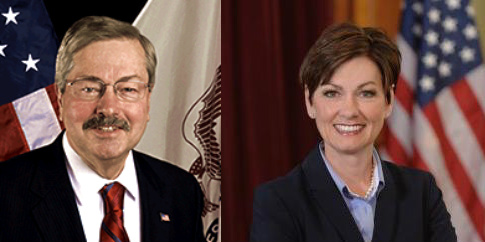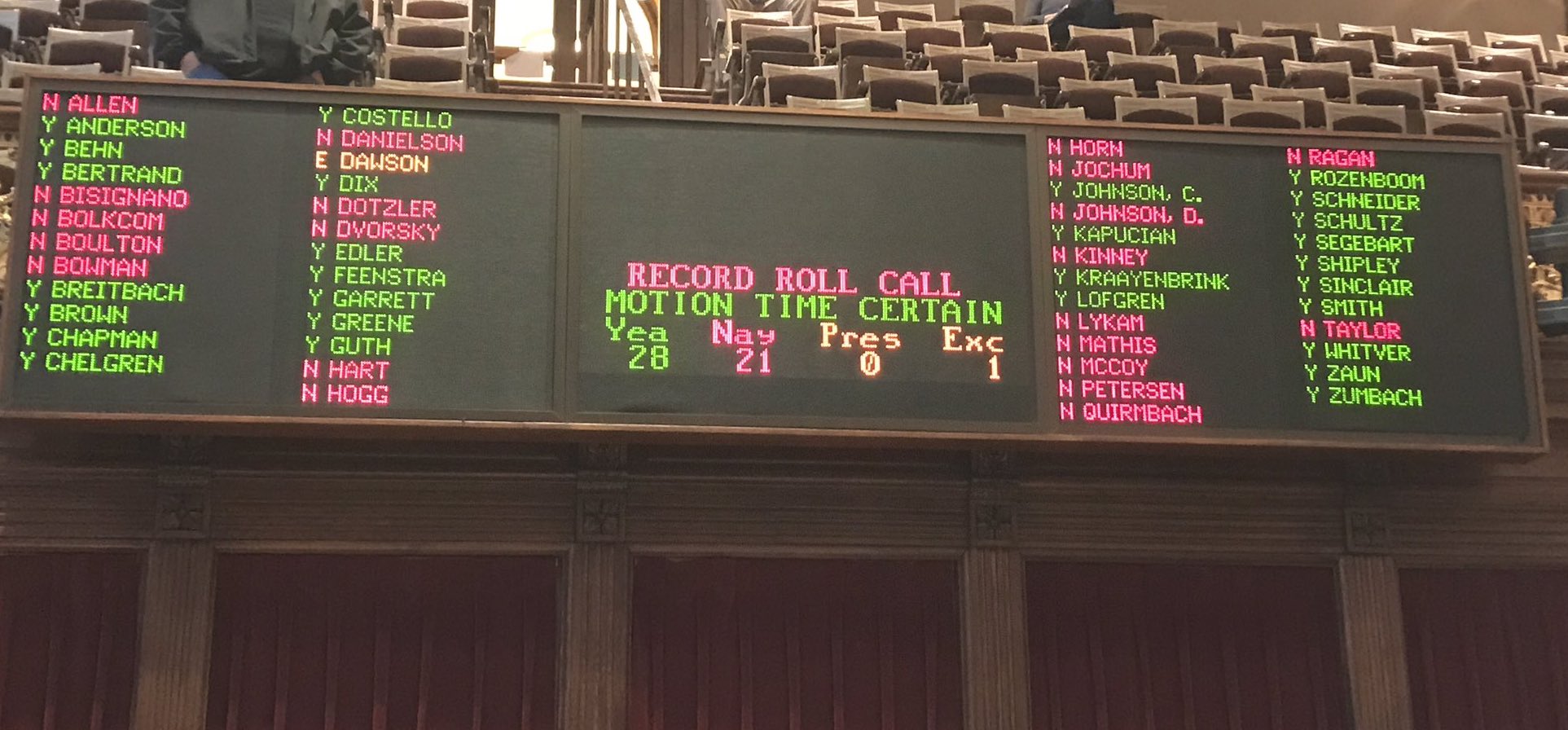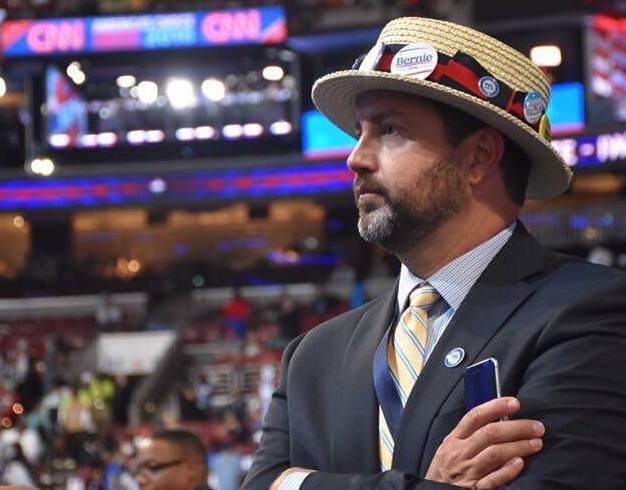A Republican bill that would have made Iowa courts far less accessible to ordinary people will die in an Iowa Senate subcommittee, GOP State Senator Charles Schneider told Bleeding Heartland on February 25. Bill Brauch, former director of the Consumer Protection Division in the Iowa Attorney General’s Office, explained here how the so-called “loser pays” bill “would in effect kill Iowa’s private consumer fraud law, and just about eliminate any other type of legal action by an individual against a defendant with money.”
Senate Judiciary Committee Chair Brad Zaun introduced Senate Study Bill 1008 during the first week of the legislative session, then assigned it to a subcommittee chaired by Schneider. Following a February 25 public forum in Clive, I asked Schneider about that bill’s status. He replied, “I don’t think it’s going anywhere. I haven’t held a subcommittee meeting for it, and I’m not planning to.”
I mentioned that Senate Majority Leader Bill Dix had named “loser pays” as one of his top four priorities in an interview with Radio Iowa. Schneider responded, “I’m not planning to hold a subcommittee meeting on it. I don’t think any other tort reform bills include a ‘loser pays’ section in them.”
Under Iowa legislative rules, most non-appropriations bills will be dead for the year if they have not cleared at least one Iowa House or Senate committee by the first “funnel,” coming up on Friday, March 3. The leaders of subcommittees and committees have discretion on what bills to bring up for a vote.
I’m pleasantly surprised to learn Senate Study Bill 1008 will go down without a fight. Only a month and a half ago, Dix cited a “measure that ensures losers in those court cases pay for the cost associated with the case” as one of “four bills that I believe define us and give Iowans a clear indication of where we plan to go with policies for our state.” The Iowa Association of Business and Industry, a lobby group with substantial influence among statehouse Republicans, registered in favor of this bill almost immediately. Perhaps Schneider, who practices law as a day job, was able to convince non-attorneys Dix and Zaun that “loser pays” is unnecessary and unfair. Or perhaps Zaun miscalculated by putting Schneider in charge of this subcommittee.
Whatever caused this bill’s demise, any bit of good news from this dreadful legislative session is worth celebrating.
UPDATE: Reader Marian Kuper noticed that Senate Study Bill 1144 contains a “loser pays” clause for nuisance lawsuits against large livestock farms. Senate Agriculture Committee Chair Dan Zumbach proposed that bill, which contains several provisions designed to shield confined animal feeding operations (CAFOs) from lawsuits. It has passed a subcommittee and appears likely to survive the funnel, with support from several Big Ag lobby groups.



















